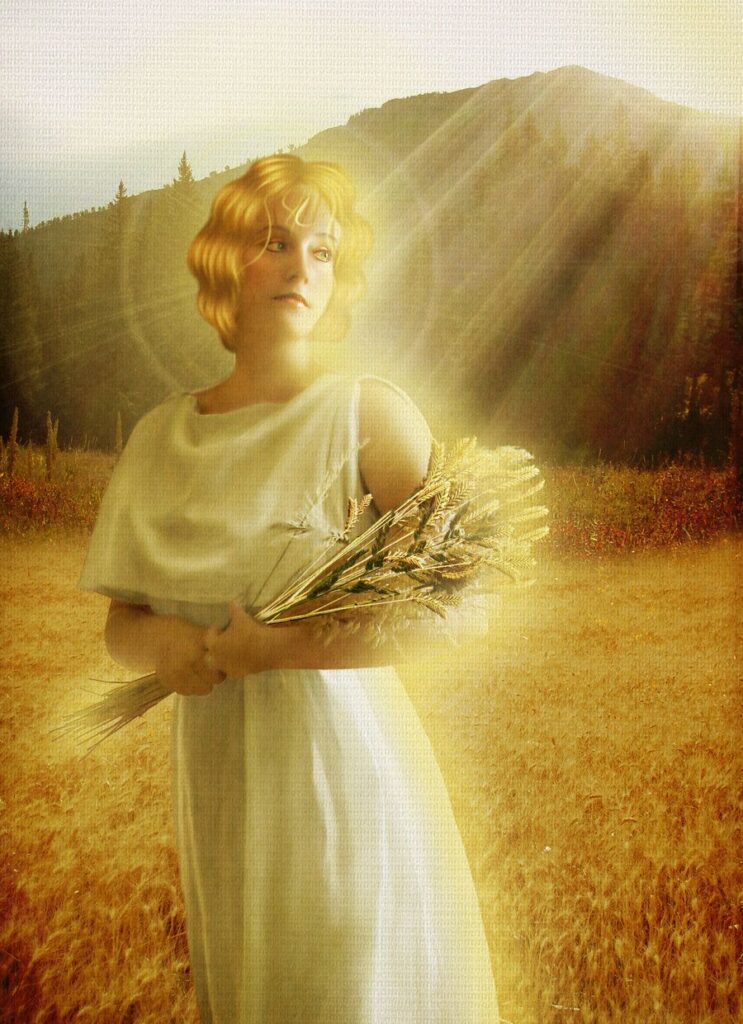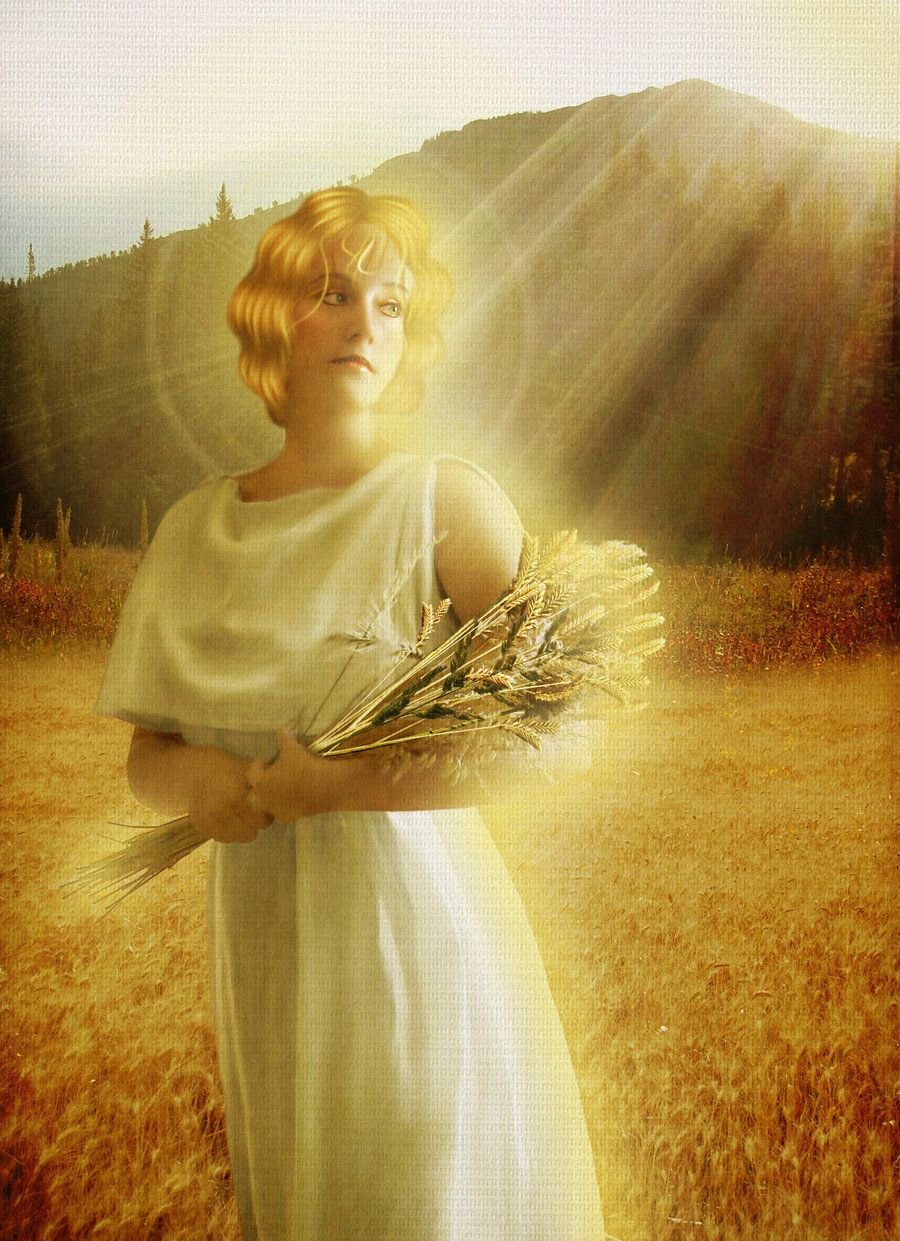
Get ready to plunge into the captivating realm of Greek fertility goddesses.
These heavenly figures are a vital piece of old Greek culture, encapsulating the genuine core of readiness, improvement, and the marvel of life itself.
Inside this article, we’ll take a journey through the enchanting accounts of two indisputable goddesses, Demeter and Aphrodite.
We’ll reveal their legends, research the getting-through impact they’ve had, and jump into the critical effect they continue to use over Greek folklore and culture.
Thus, put on your allegorical shoes and go along with us on this charming excursion into the universe of fantasies and legends!
Greek Fertility Goddesses: Nurturing Life’s Abundance
Greek mythology is like an intricate tapestry woven with threads of various deities, each holding a special significance.
Among these divine figures, fertility goddesses occupied a special and revered position.
These celestial beings were believed to wield influence over the natural world, ensuring the prosperity of crops, the birth of healthy offspring, and the thriving of all forms of life.
The narratives surrounding these goddesses served as sources of solace and inspiration for the people of ancient Greece.
These stories reminded them of the cyclical rhythm of life and the interconnectedness that binds all living creatures together.
- Read also: Narcissus in Greek Mythology
- Read also: Slavery in Ancient Greece
Demeter
Let’s delve into the captivating story of Demeter, the goddess of agriculture and fertility.
Her tale is one of nurturing and heartache, portraying her as a provider of abundance to the Earth through flourishing crops.
She embodies the essence of a caring mother to the land, ensuring its prosperity.
However, the heart of her legacy lies in the myth surrounding her daughter Persephone’s abduction – a story that triggers the changing of seasons.
This narrative beautifully illustrates the cycle of life, death, and rebirth.
As winter casts a shadow of grief upon Demeter, the arrival of spring symbolizes renewal and hope, echoing the profound connection between human emotions and the rhythms of nature.
This myth encourages us to embrace life’s inevitable highs and lows with resilience and an open heart.
Aphrodite
Her presence radiates like a beacon, captivating both gods and mortals alike.
Her influence reaches far and wide, encompassing the realms of passion and procreation.
The narratives woven around her depict her as the very source of attraction and fervor that binds individuals and drives the propagation of life.
From her unconventional emergence from sea foam to her pivotal role in igniting flames of romantic and sexual love, Aphrodite’s myths delve deep into the intricate web of human emotions.
Her stories resonate with the complexities of our hearts and highlight the compelling force that pushes life onward.
She stands as a symbol of the enchanting power of love and attraction, which not only molds relationships but also fuels the very cycle of existence itself.

Myths Unveiled: Tales of Life and Renewal
The tales of Demeter and Aphrodite offer profound insights into the cycles of life and renewal.
Demeter’s grief over her daughter Persephone’s abduction and subsequent return symbolizes the eternal cycle of nature, where death leads to rebirth.
Aphrodite’s stories, on the other hand, illustrate the power of love and desire that connects all living beings and ensures the continuation of generations.
These myths remind us that life’s tapestry is woven with both joy and sorrow and that every ending paves the way for a new beginning.
Legacy in Greek Mythology and Culture: Seeds of Inspiration
The impact of Demeter and Aphrodite’s legacies is deeply ingrained in the fabric of Greek mythology and culture, leaving an indelible mark that fuels inspiration and shapes a variety of artistic expressions.
Their narratives have seamlessly woven into the tapestry of rituals and festivities – think of the Eleusinian Mysteries dedicated to Demeter and the vibrant celebrations of love and beauty in honor of Aphrodite.
The echoes of their stories are captured in sculptures and poetry, effectively immortalizing the very essence of their messages.
These artistic representations serve as a testament to their themes of growth, love, and the cyclical nature of existence.
What’s remarkable is how their influence remains relevant even in contemporary times.
The tales of Demeter and Aphrodite continue to ignite the creative sparks of artists, writers, and thinkers, forging a bridge between history and the present.
Through their myths, these goddesses effortlessly connect us with timeless facets of the human experience, reminding us that the intricacies of growth, love, and life’s rhythms are threads that bind us across generations.
- Read also: Exploring the Fascinating World of Chinese Mythology Gods
- Read also: The Mayan Pantheon: Exploring the Deities of an Ancient Civilization
Conclusion
As we draw our journey to a close, it’s evident that the tales of Greek fertility goddesses, especially Demeter and Aphrodite, hold a cherished place within our collective consciousness.
These stories not only shaped the beliefs of ancient Greece but also offered profound insights into the intricate fabric of existence itself.
Through their myths, brimming with emotions and timeless wisdom, we are reminded that life is a delicate dance of growth and transformation, love and sorrow.
Just as crops flourish from the nurturing earth and love ignites within our hearts, these goddesses continue to guide our understanding of the boundless tapestry of life.



